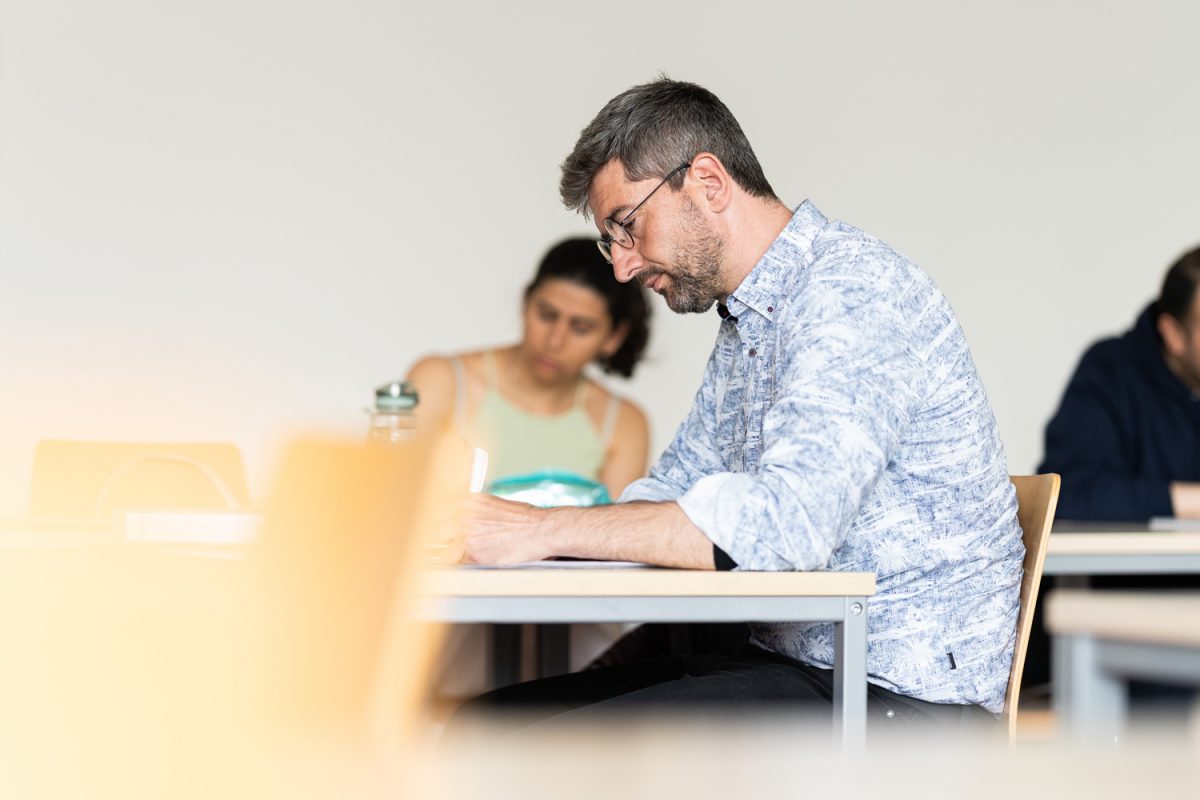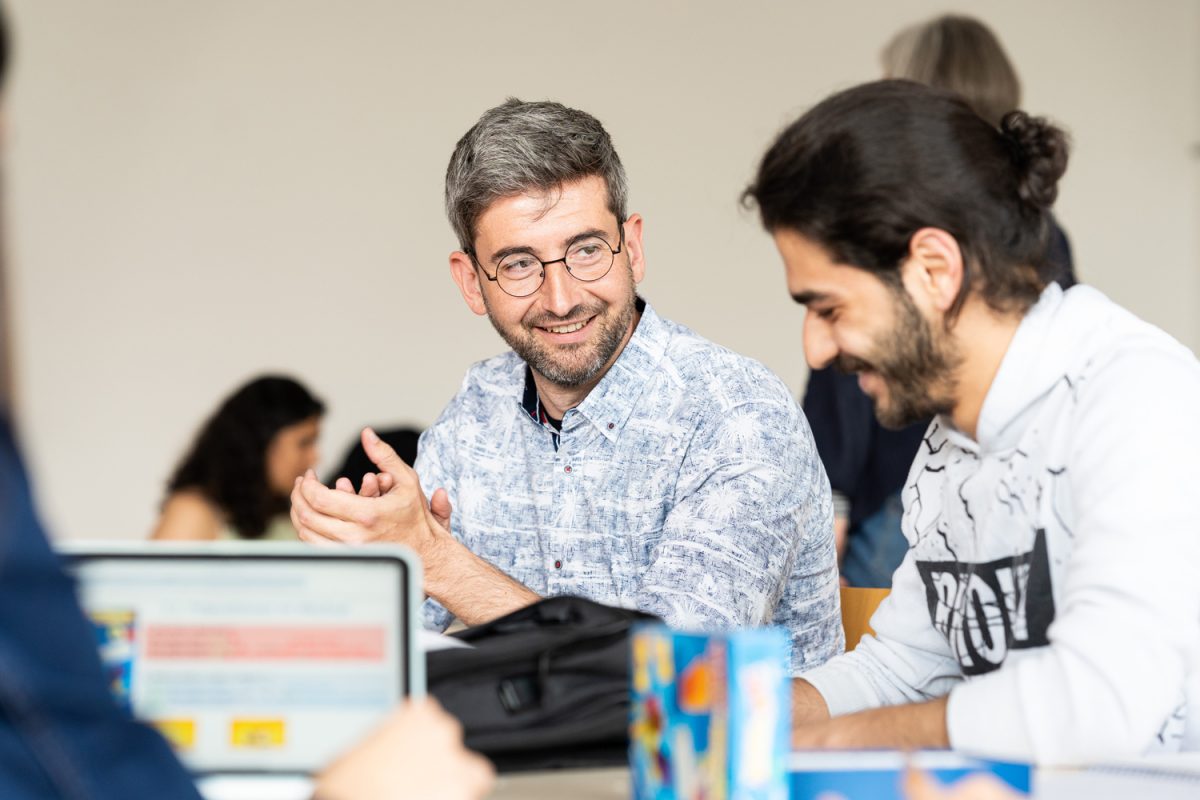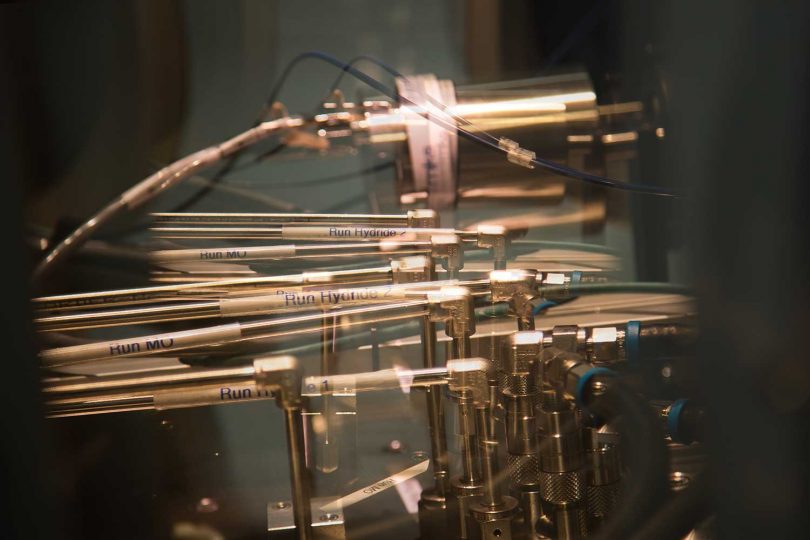“Learning German is a priority for me” Humboldt Professor Daniel Prades on his first year in Braunschweig
Professor Daniel Prades has been a member of the Metrology research focus and the QuantumFrontiers Cluster of Excellence at TU Braunschweig since April 2024. He moved to Braunschweig from the Universitat de Barcelona with funding totalling five million euros from the Alexander von Humboldt Foundation. In this interview, the native Catalan talks about his new everyday life in Germany.

This summer semester, Humboldt Professor Daniel Prades is once again attending several German courses at the Language Centre. Picture credits: Daniel Götjen/TU Braunschweig.
You took up your new position at TU Braunschweig almost exactly a year ago. How have you settled in since then?
Very well. However, I also knew what to expect, as I had already been working with TU Braunschweig on various projects since 2012. I, therefore, knew the university, my colleagues, and the city. The recruitment process and bureaucratic matters – such as applying for a new ID card and opening a bank account – were handled very quickly and smoothly. It was a very positive surprise seeing the European integration in action.
Now you are not just in Braunschweig temporarily for a project; you are living here permanently. Does that make a difference?
Yes, it definitely has a psychological component. As a visitor, you usually only engage with the city to live the “sweet life of a tourist”. Now that I live here on a day-to-day basis, other things become more important – for example, socialising and making friends outside of work. At the same time, my view of TU Braunschweig and our institute has changed. I am now a fully-fledged member of the university and I feel much more involved and capable of contributing to the organization. Despite I regularly visit my family and friends in Barcelona, the nice thing is that I feel Braunschweig my home now.
Have you noticed any differences between Barcelona and Braunschweig – both in everyday life and at university?
I live a much healthier lifestyle now – especially when it comes to food. In Barcelona, delicious treats were always within reach, and I found them hard to resist. Here, my diet is much leaner than it ever was there.
In terms of the university, I find it exciting that many processes are very similar at both universities – be it at administrative level or in terms of decision-making processes at management level.
Additionally, while the processes in Germany are a bit more bureaucratic than those in Barcelona, the underlying logic is similar—so I was able to come to terms with it.
What role does the German language play in your settling in to your new home?
Learning German was not just an option for me, but a priority. My entire professional and private life now takes place in Germany. Therefore, I definitely want to be able to communicate in the language of the country. English is the everyday language at the institute and in my research area, because people from many different countries work together here, but learning German is very, very important to me.
How did you improve your German language skills?

Daniel Prades greatly values the personal exchange with the other participants in the language courses. Picture credits: Daniel Götjen/TU Braunschweig
I attended German courses at the TU Braunschweig Language Centre. It is a great programme and I really enjoy the courses. Someone recently told me that it is rather unusual for professors to sit in on courses with students – now I know why everyone looked at me so strangely (laughs). However, to be honest, I find the exchange with the students super exciting and I learnt more about TU Braunschweig from a student perspective. We also all had something in common in the courses – the experience of being a foreigner in Germany. That bonded us together and motivated us.
I have now completed the B2.2 level, but I definitely want to attend more courses. The Language Centre offers a very good range of courses and I like the fact that I can learn German right here on campus.
You have also tried out the tandem programme at the Language Centre – how do you like it?
Yes, I actually have two tandem partners who work in different departments at TU Braunschweig. As well as putting my German skills into practice, I also found the tandem programme extremely helpful for getting to know other perspectives. In tandem, you don’t just talk about work – which gives you a glimpse into how others at TU Braunschweig think and work, but also about personal issues. I learnt a lot about how my tandem partners think about Germany and German society.
You invest a lot of time in learning German alongside your work. This balancing act is a major challenge for many international students. Do you have any advice for them?
I would recommend that international students schedule fixed time slots to sit and learn German grammar and vocabulary. These are extremely helpful, but we often forget that we need to set aside time for them. In contrast, there are plenty of chances for practical speaking in everyday life – for example at the bakery or in lectures. We can take advantage of these abundant situations for practical speaking, without planning at all.
How would you summarise your first year at TU Braunschweig?
It’s the year in which I’ve learnt the most – and that’s my favourite thing to do! It has also solidified my vision for the future; I want to stay here in Braunschweig. When I moved, it was still a rather vague “let’s see how I like it”. That has definitely changed in the past twelve months!

